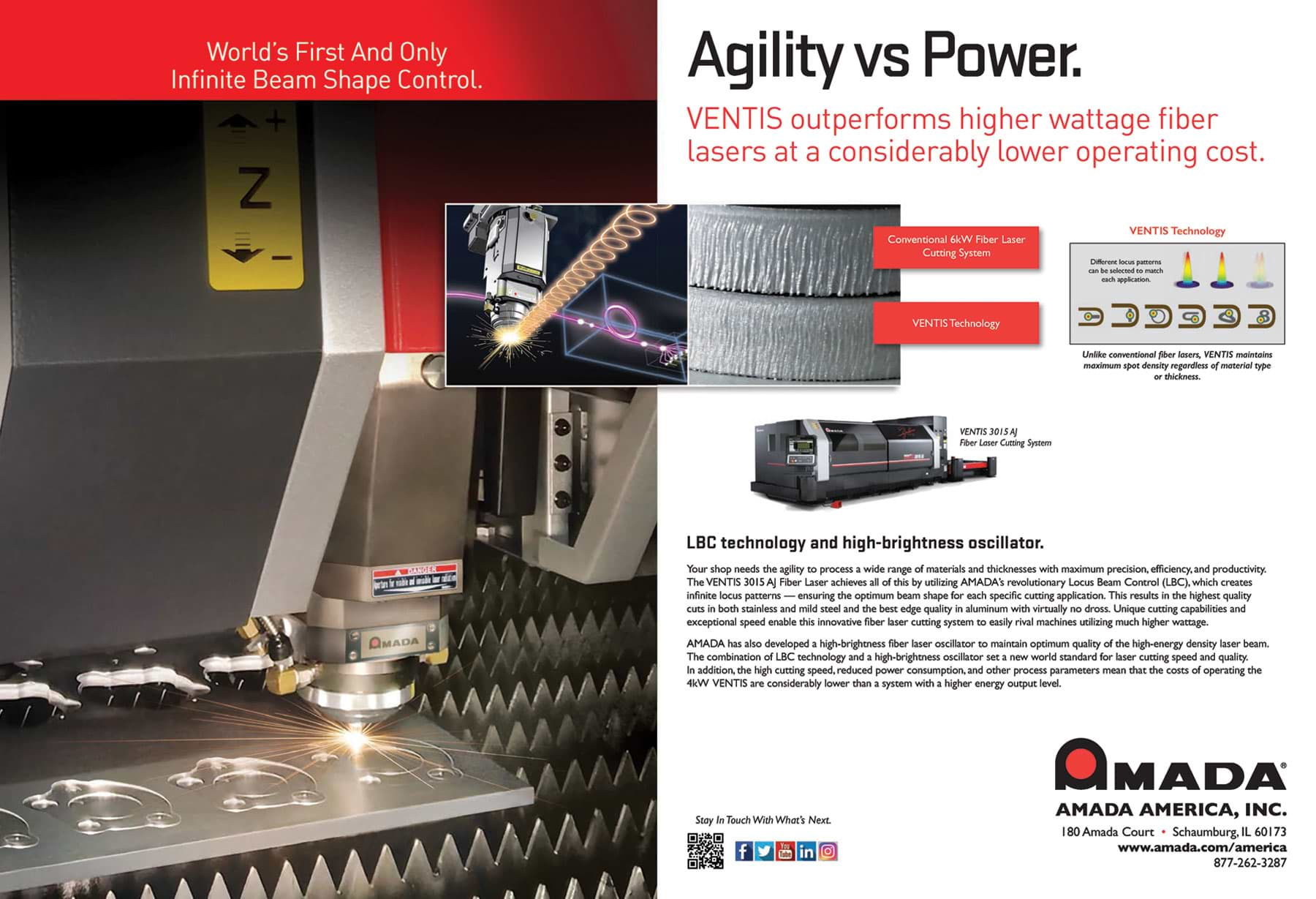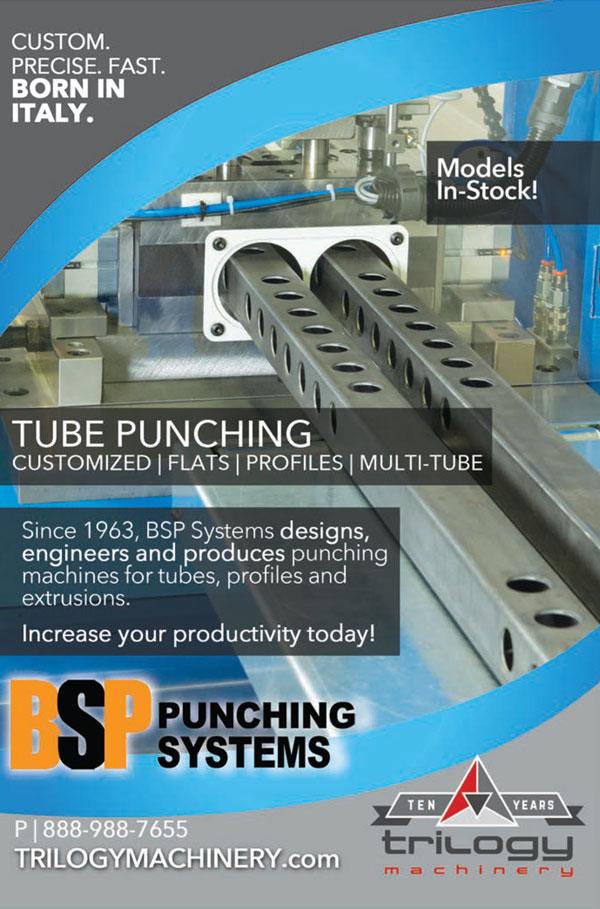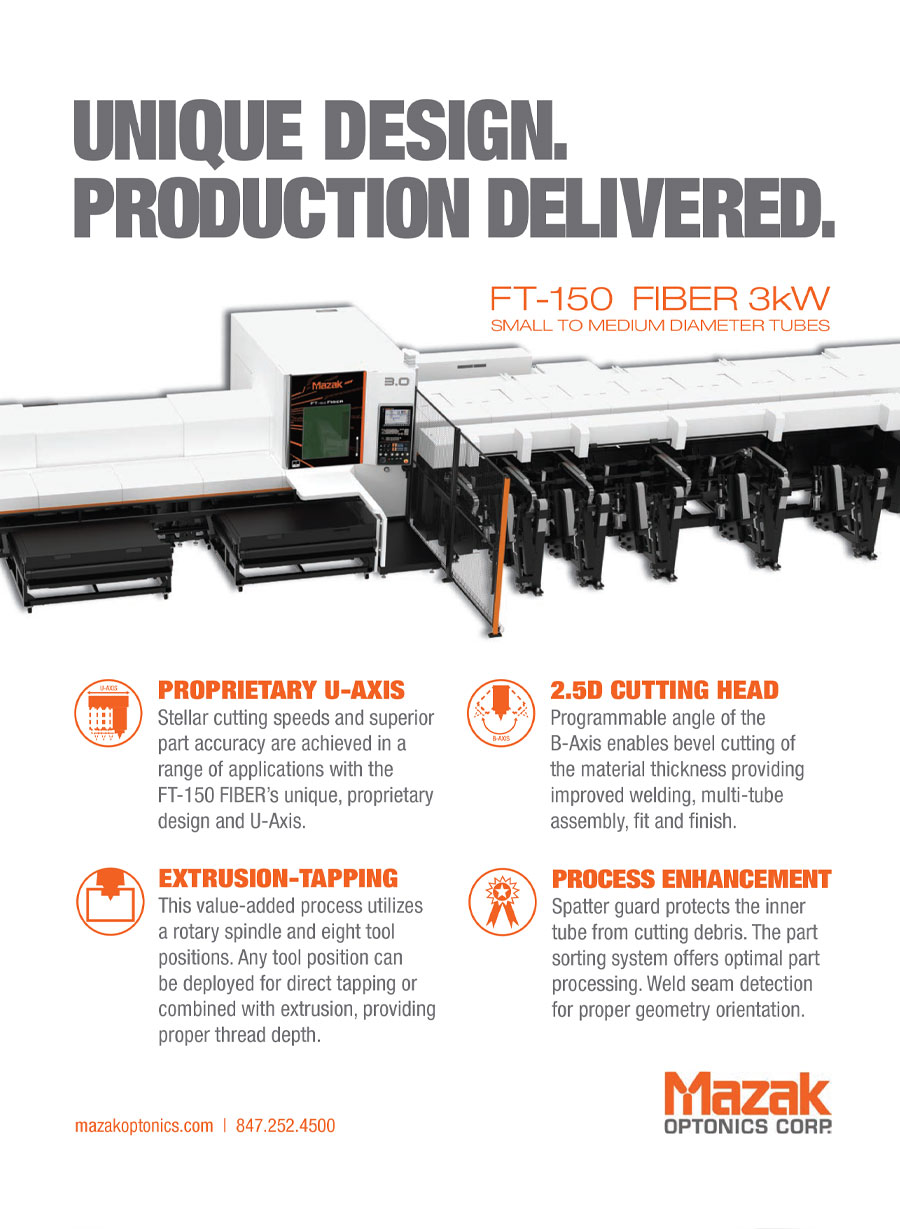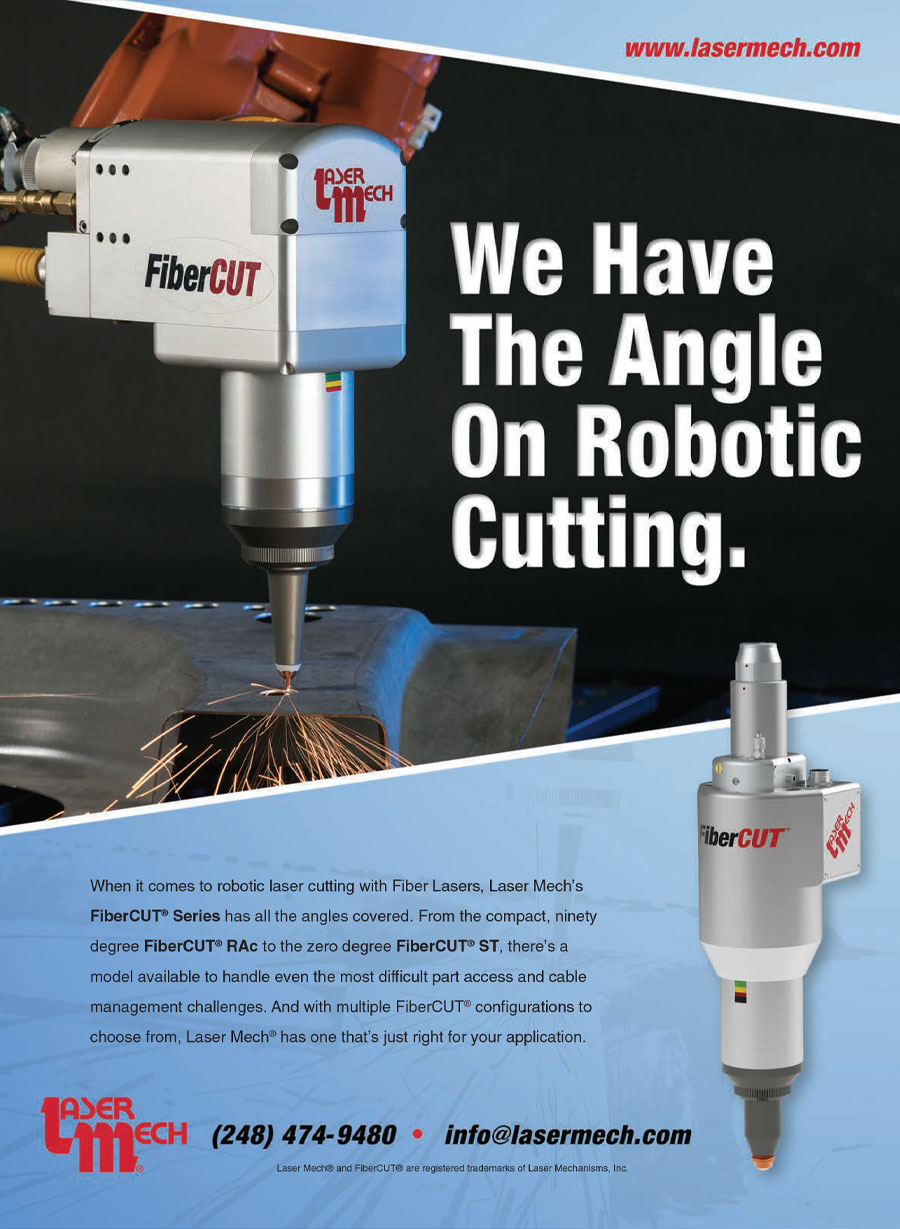
s the COVID-19 pandemic continues, the ripple effect on the metals sector emanates throughout the supply chain. Fabricators of varying sizes are coping with the new normal by allocating some personnel to work from home, adjusting lines of communication to keep operations running smoothly, coping with declines in revenue, all while planning for the future.
The virus presents a unique set of challenges different from financial crises past. The added component of fear for the health and safety of workers makes working amid a pandemic a complicated conundrum.
According to a survey by the National Association of Manufacturers, 35.5 percent of respondents reported facing supply chain disruptions, with 64.5 percent of those 558 respondents reporting they are not. Companies reported a near 50/50 split as to whether management had an emergency response plan in place to prepare their company and employees. This uncharted territory has resulted in companies taking swift action to instill order in circumstances out of their control.
s the COVID-19 pandemic continues, the ripple effect on the metals sector emanates throughout the supply chain. Fabricators of varying sizes are coping with the new normal by allocating some personnel to work from home, adjusting lines of communication to keep operations running smoothly, coping with declines in revenue, all while planning for the future.
The virus presents a unique set of challenges different from financial crises past. The added component of fear for the health and safety of workers makes working amid a pandemic a complicated conundrum.
According to a survey by the National Association of Manufacturers, 35.5 percent of respondents reported facing supply chain disruptions, with 64.5 percent of those 558 respondents reporting they are not. Companies reported a near 50/50 split as to whether management had an emergency response plan in place to prepare their company and employees. This uncharted territory has resulted in companies taking swift action to instill order in circumstances out of their control.
Shifting to remote work has caused Richards Sheet Metal to adjust its paper handling between steps of the production process. Managing shop floor operations, such as adjusting to IT changes with employees working off site, coupled with employee concerns and fear of the unknown poses another set of challenges.
Changing the work environment to include signage and allowing for social distancing in common areas are some of the steps companies like Noble Industries in Noblesville, Indiana, have taken to adjust to doing business during a pandemic.
 A global pandemic was not on the list of things we planned for.
A global pandemic was not on the list of things we planned for. 
Compliance during COVID-19 has proved challenging for fabricators like Weaver Fabrication in Akron, Ohio. “Being a company that teeters from over 50 employees to under 50, the ever changing COVID-19 compliance laws and regulations is challenging,” says James Lauer, vice president and co-owner alongside his wife, Marian Lauer.
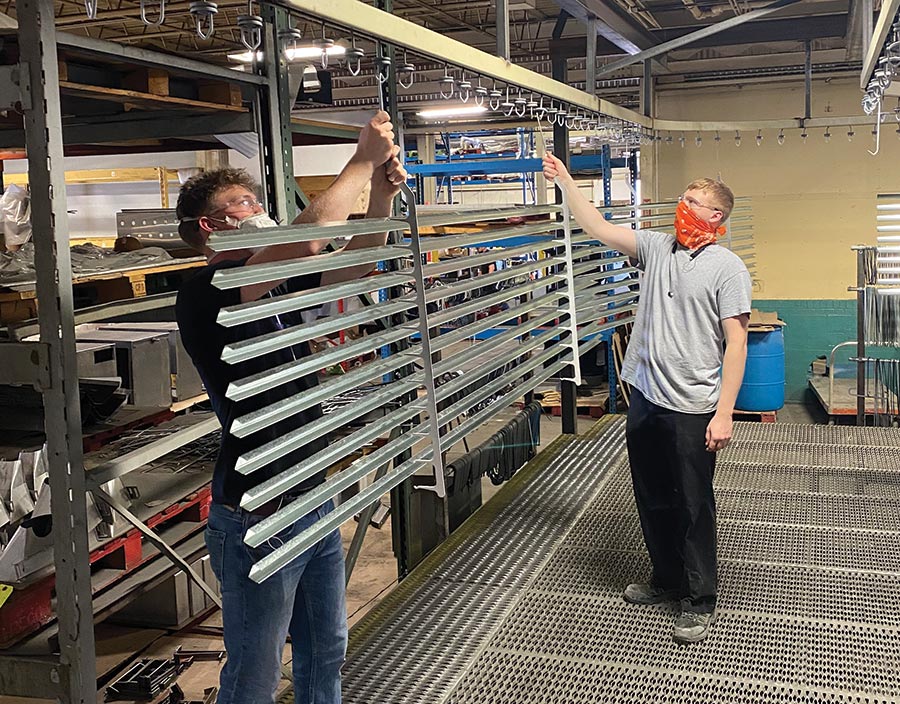
In Lithonia, Georgia, Southern Metalcraft Inc.’s 39-employee team works four days a week running 10-hour shifts. “Our administrative and pre-production team normally work a 7.5-hour day on Friday but, since April, we’ve been closed every Friday due to a lack of work in these areas,” says Greg Williams, president and CEO.
Demand dropped for a period of four to six weeks for Fabricated Products Group (FPG) in Frankfort, Illinois, which employs 10 to 20 at any given time.
“There have been been many challenges in our business over the last few decades. However, this could be one of the more challenging,” says Daniel Shields, president. “We are a proactive company and have had to react to changing parameters set by local officials.”
 My surprise is that it’s a constant battle to fill positions.
My surprise is that it’s a constant battle to fill positions. 
The financial crisis from 2008 taught certain lessons, including at Richards Sheet Metal. After 2008, a new management team emerged. “We learned from that period,” Jensen says. “A global pandemic was not on the list of things we planned for, but the carryover from prior planning has benefited us. Having a diverse customer base has benefited us as well. One industry might be down, but another is ramping up.”
While the U.S. is experiencing its highest levels of unemployment since the Great Depression with 40.8 million claims filed between mid-March and the end of May, Lauer has had a difficult time finding workers to hire.
Co-owner Marian Lauer is in charge of hiring and has found it difficult to fill positions. “She fights a constant battle,” James Lauer says. “I thought with the unemployment numbers where they are, it would be much easier to staff up. My surprise is there aren’t more people out looking for work,” he continues. “We have been on the hunt for welders, and it seems like we’ve been looking forever. We’re having real trouble filling these positions.”
Finding qualified workers to perform grinding or operate press brakes “is extremely rare,” Lauer adds.
At Southern Metalcraft, booked revenues are down about 50 percent due to COVID-19. “We had several orders put on hold or canceled due to the uncertainty,” Williams says.
 We are trying to staff up. I expect the economy to come back strong.
We are trying to staff up. I expect the economy to come back strong. 
Despite the unexpected arrival of COVID-19, FPG doesn’t plan to alter its business model. “That, coupled with our talented individuals and a sound construction industry, has helped us going into this pandemic,” Shields says. “There is no reason we need to change how we approach business.”
As the gradual reopening of the country continues, FPG is adding several protective items to its offerings, including products like sneeze guards, to help communities across the U.S. protect employees and customers. “As a result, this is helping us with production gaps caused from the earlier shutdown,” Shields says.
At Noble Industries, employees are instructed to stay home if they have a temperature, or to stay home for 14 days if someone they have been in contact with has tested positive for the virus. This reduces the chances of it spreading. Attention to detail includes the maintenance/safety manager personally going through all the frequent touch points in the building twice a day to wipe everything down, including door handles, keyboards, computer mouses and digital control panels.
When a hand sanitizer shortage prevented companies like Noble from purchasing it for employees, a company that handles chemicals for its powder coating line made hand sanitizer. Work stations have been relocated further apart, and workers eat at their work stations. Noble enforces a 6-ft.-apart rule to maintain physical distancing both inside and outside the shop.
 Some customers had the nerve to ask for discounts—so much for we’re all in this together.
Some customers had the nerve to ask for discounts—so much for we’re all in this together. 
Weaver Fabrication hiring efforts continue. “We are trying to staff up. I expect the economy to come back strong,” Lauer says. “I am hoping in the short-term for a lot of pent-up demand. The world has been locked up for three months.”
Jensen believes momentum will pick up later in 2020. “People will need to get back to work to provide for themselves and their families,” he says. “We have noticed a trend over the years that in a presidential election year, orders tend to be a bit soft until the election is over. Then customers place pretty significant orders.”
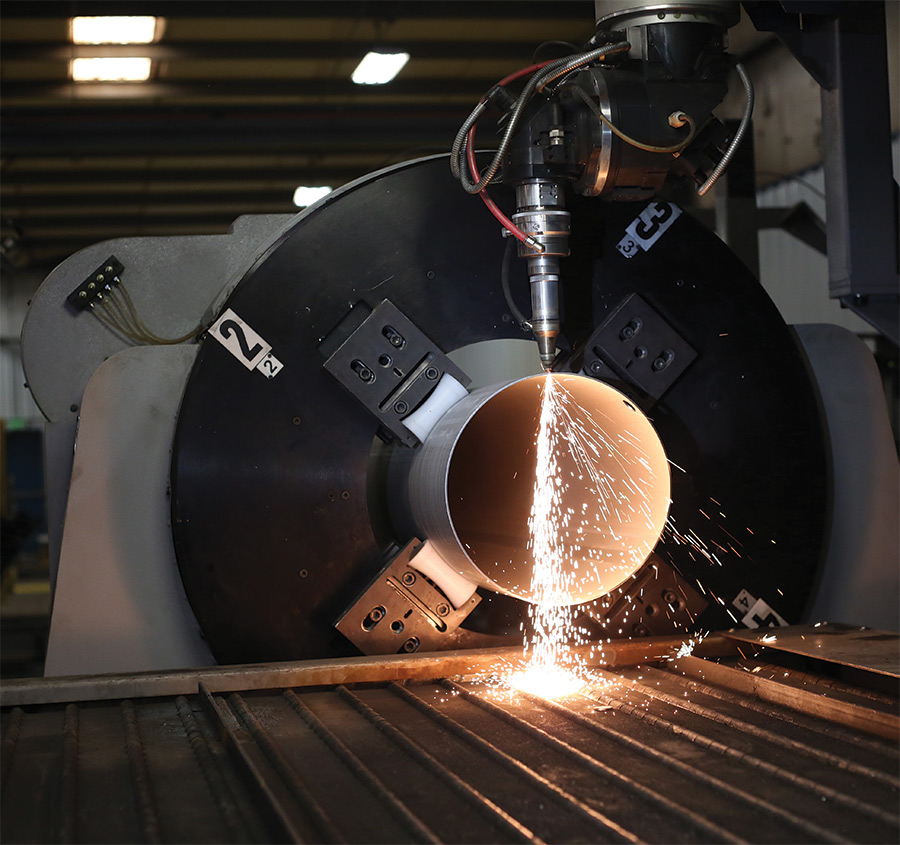
In adjusting to changes in demand and work operations, some Noble customers sought discounts. Surprises include two major customers “who had the nerve to ask for discounts even though their volume of work was reducing and our costs were increasing,” Snyder says. “One longstanding customer sent a ‘Dear Supplier’ mass email on April 13 stating that given the current conditions, they wanted a 12 percent reduction on their prices with an effect date of May 1.
“A different customer at least sent an email with our name on it on March 31 and asked for a response by April 15,” Snyder continues. “They wanted a 10 percent reduction but did give us room to give another option—so much for we’re all in this together.”
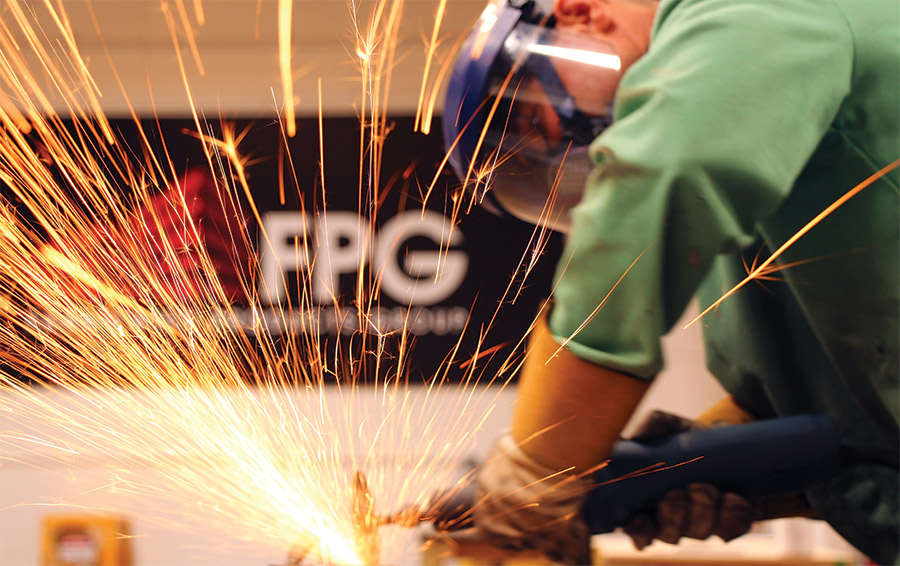
Some vendors have experienced delays supplying materials to Southern Metalcraft because of COVID-19. “On several occasions we’ve had to extend fabrication lead times due to both availability and vendor lead times because of logistics,” Williams says. “Once this became apparent, we made sure to confirm these details before quoting new requests from our customers.”
Going forward, Weaver Fabrication’s Lauer believes outsourcing jobs overseas should be reassessed. “We need to bring work home. That would be a huge boost to the economy and would solve a lot of problems,” Lauer says.
Before COVID-19, Noble Industries was on pace for its best fiscal year yet. Due to the shortage of coronavirus tests in the United States, fabricators remain overtly cautious.
 It is challenging as a leader to maintain a positive culture.
It is challenging as a leader to maintain a positive culture. 
By keeping employees’ daily routine as normal as possible, “they take less stress home with them,” Jensen says. “We are doing things to improve our facilities, streamline workflow and make adjustments to allow us to be more efficient.”
Southern Metalcraft has not had any suspected exposure cases. “To help protect our team, we closed our doors to outside visitors starting in April, except for scheduled deliveries,” Williams says. “We also meet weekly to update everyone on the current state of the virus and the ramifications” if it were to penetrate the walls.
As states permit the restart of economic activity, the consequences of an infection rate spike should remain a serious concern. “Patience has not always been a characteristic of the [manufacturing] industry and the U.S. collectively, displayed during times of anxiety and stress,” Williams says. “It would benefit us all to think of others and realize in this instance the potential [repercussions] of a bad decision that might reach much further than our bottom line.”
